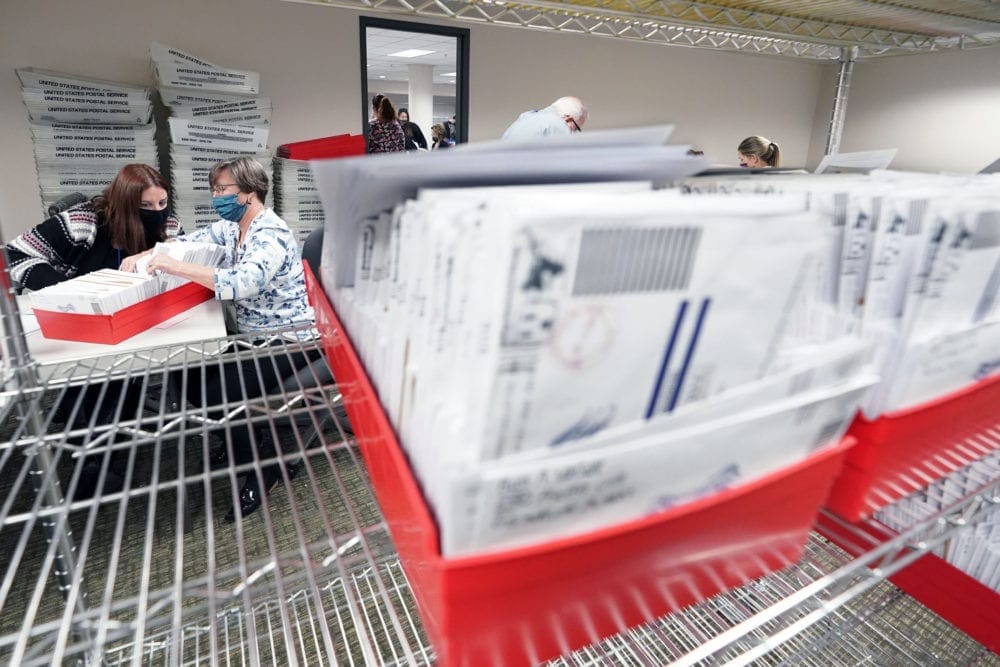The polls were far from correct in their predictions for Election Day, 2020. It will take months — and maybe even years — to figure out why they were so wrong. Even so, the autopsy is already well underway. A Mary Altaffer/AP image.
– News covered by Quincy Quarry News with commentary added.
 Quincy Quarry weighs in on what went wrong with polling this election cycle.
Quincy Quarry weighs in on what went wrong with polling this election cycle.
As others begin to endeavor to figure out what went wrong with polling this election cycle, it must be noted that Quincy Quarry called things accurately in advance of the release of actual vote tallies in both the Quarry and in other venues.
For example, the Quarry’s political and other sordid affairs desk projected a likely to be narrower Electoral College win for former Vice President Joe Biden and which is how things played out.
Quarry peeps are also on record as projecting a much closer margin in the not deciding popular vote.
Quarry personnel further suggested that expectations of Democrats taking decisive control of the United States Senate were unduly optimistic.
At this point, barring the two Democrat challengers going an unlikely two for two against the Republican incumbent senators in runoff elections in traditionally conservative Georgia next month, Republican Senate Majority Leader Mitch McConnell will likely continue to be the Senate Majority Leader when the 117th United States Congress convenes next month.
Similarly, while still in the minority, Republicans are looking to gain as many as a dozen seats in the House of Representatives once all of last month’s 435 house races are officially decided.
This, in turn, would reduce Speaker of the House Nancy Pelosi’s Democratic majority to but nine and thus but a five seat future net gain by Republican challengers would change the balance of power in the house.
Returning to polling, key problems include ever-greater problems securing truly random polling samples that accurately reflect the general public.
After all, the usual several to handful percentage point plus and minus factor cited when discussing polls is predicated upon having polled a truly random pool that mirrors the germane group of those polled. Unfortunately, all manner of ever-changing factors are making it ever more difficult to secure duly random samples.
In turn, fail to secure a truly random sample pool which duly reflects the relevant population and the resultant polling data will likely be less accurate.
Granted, there are ways to adjust for an imperfect sample pool; however, doing so also gives rise to a larger margin of error range for technical reasons which mostly only wonks might find of interest even if most everyone else can at least grasp the crux of this collateral polling problem.
And then there is the growing problem that some among those polled do not respond candidly and/or accurately to pollsters and those who do so also tend to be voters for Republican candidates.
In turn, if but a modest fraction of those who actually vote are also so-called quiet voters and they similarly vote for Republican candidates, election day outcomes will so undercut the validity of preelection polling.
The biggest problem of all, however, is that far too many, especially those in the all too often innumerate media, tend to mistakenly view polling numbers as spot-on accurate rather than the but running headcounts which were undertaken at moments in time that they but in fact are.
Also a problem for the media: using, if not also abusing, polls to endeavor to influence public opinion rather than reporting on events.
Source: Northeast Pollsters Weigh In On What Went Wrong With The Polls













